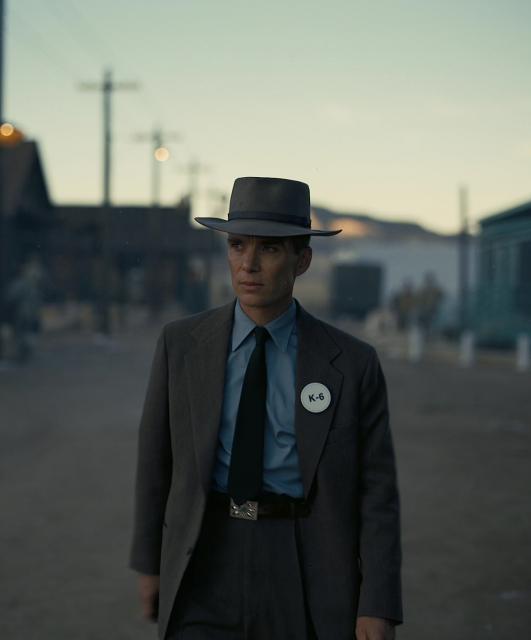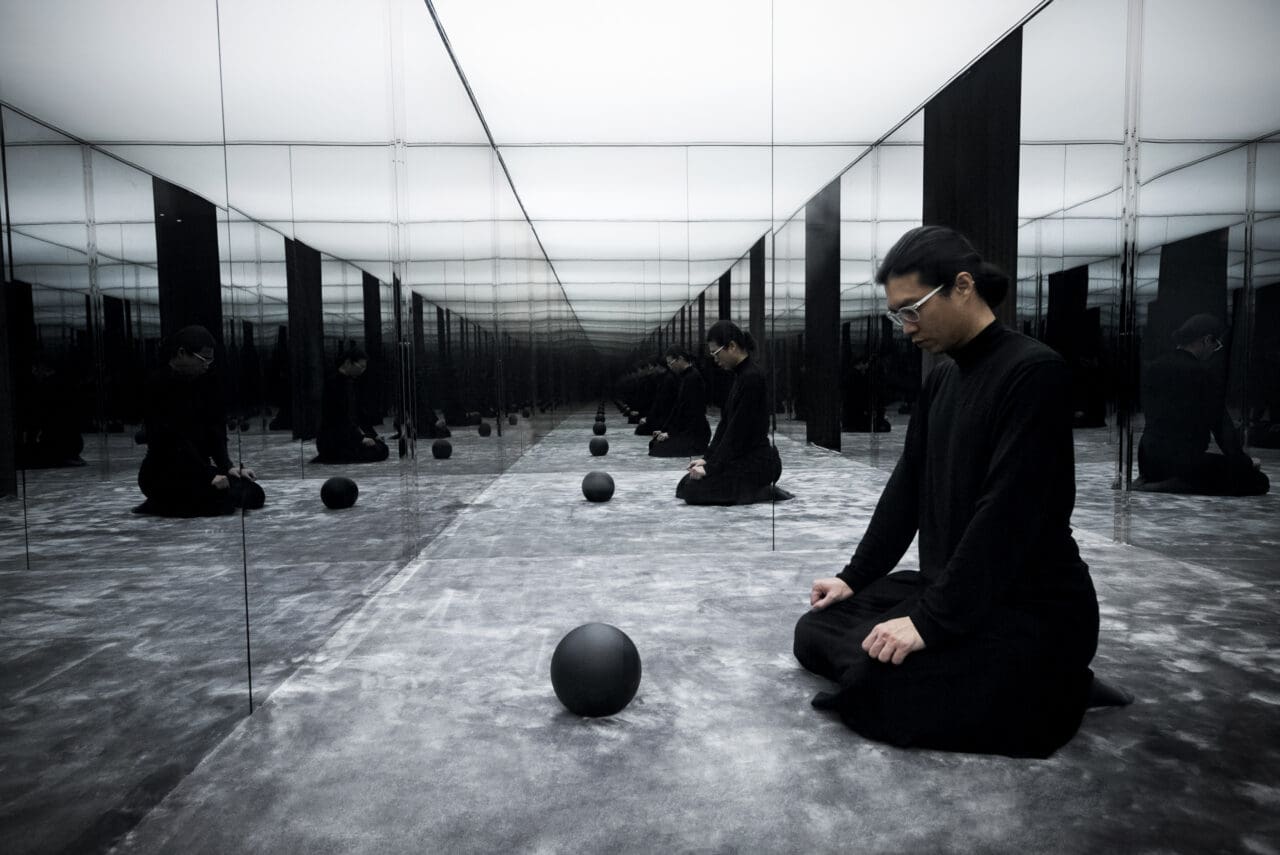Bye, Barbie — it’s time to make way for Oppenheimer! One of my favorite films this summer has to be filmmaking legend Christopher Nolan’s latest historical thriller, with the incredible Cillian Murphy playing the titular role. While historical films can tend to be quite hit-or-miss, there was something about this movie that just left me in awe, so without further ado, here are 19 thoughts I had while watching Oppenheimer (with spoilers).
1. Cillian Murphy is incredible. Oh my.
There are certain things that deserve to be reiterated: Cillian Murphy led with phenomenal acting, and by that I mean a genuinely flawless performance. No wonder the internet is obsessed with him right now. There was not a single moment where I was not completely convinced that he was “Oppie”.
2. That’s a familiar face.
Perhaps one of the thoughts I had the most throughout the film was “Hey, I recognise you!”. That’s hardly surprising when you consider the star-studded cast, including Robert Downey Jr., Florence Pugh, Rami Malek, Matt Damon, Kenneth Branagh, and more.
3. Where are the women?
Self-explanatory, although I suppose this can be justified by considering the wider historical context of the film. I appreciated the singular female scientist on the team nonetheless.
4. Emily Blunt, I love you.
The female characters may not have had a lot of screentime, but Emily Blunt takes your breath away with every scene she is in. Be it trembling in the corner of the room with a martini glass in hand or handling a gruelling interrogation by Jason Clarke’s Roger Robb, she truly stole the show with a bold and memorable performance.
5. Oppie, this is not going to go the way you think it is…
Every time Oppenheimer tries to sell this bomb as a tool to end all wars, you grimace a little. While his argument makes theoretical sense because of mutually assured destruction, it’s pretty hard to stand on his side and use that as justification for all the terrible suffering an atomic bomb can cause.
6. Wait, did someone kill Jean Tatlock??
A chilling scene that goes unexplained is the gloved hand drowning Tatlock, which only occupies a few seconds of the film. Is this meant to insinuate that she may have been killed by the US government for her involvement with communism? Or does it signify Oppenheimer blaming himself for her suicide? Either way, I have goosebumps.
7. That explosion… Wow.
The explosion is spectacular. The macrocosm of it all is condensed into that one moment, when light flashes blindingly before Los Alamos’ eyes, and all their hubris is, momentarily, satisfied. It is just as large-scale and magnificent as you anticipate it to be, and it’s a poignant scene where, as the audience, you are confronted with this glorious moment of such magnitude, even as you cannot shake your knowledge of what tragedy inevitably occurs next.
8. I am so aware of my own breathing right now.
In the moments of and following the explosion, you are fully transported into the scene. The movie is bombarded with noise up until the moment the bomb goes off, and for a few minutes all you can hear is breathing – a pulsating rush of life, juxtaposed with the destruction soon to come. (It’s worth noting that the bombing of Hiroshima and Nagasaki, where the bomb actually comes into use, doesn’t get screen time – Oppenheimer’s focus is not on the real, practical devastation, but the theoretical success and fruition of his science.)
9. It’s amazing that this was shot on film.
The aspect ratio shifts between DCI Standard 1.9:1 and IMAX Native 65mm, with an aspect ratio 1.43:1. The 65mm achieves much more depth and immersiveness, and it is an incredibly effective medium for a character study, especially considering there is no outside perspective in the film, only Strauss’ and Oppenheimer’s.
10. How the hell does Nolan do it?
I found myself feeling this way several times throughout, but most strongly during the Trinity test scene. Rendering such a colossal explosion on the big screen would have stood as one of the greatest (and, probably, most appealing to Nolan) challenges, especially without CGI – but you never once feel that this scene, which they’ve spent half the movie building up to, falls anywhere short of remarkable.
11. Did I mention that Cillian Murphy is incredible?
Give this man his Oscar now! The subtlest changes in Murphy’s expressions conveyed Oppenheimer’s mentality and motivations to perfection. He is purposefully hard to read, to illustrate the indecisive ambivalence of our unreliable protagonist – just as the character’s stance is confusing to us as the audience, Murphy’s Oppenheimer doesn’t seem to know what he believes himself, either.
12. The sounds of these stomping feet are really overwhelming.
The stomping feet of the Los Alamos team are a recurring motif signifying Oppenheimer’s guilt, as a moment intended to be victorious becomes something quite traumatic. The stomping of the feet are even louder than the explosion itself, and the sound forces him to confront the people part of his idealized physical experiment, which he and many of the scientists have been shutting out or brushing past in a bid to focus on the physics rather than the ethical consequences of their science.
13. The cast must have actually aged a whole lifetime whilst making this film.
The old-age makeup and stippling is fantastically executed in this film, especially Cillian Murphy’s (his commitment to losing weight for the character definitely also had a hand in that). He looks completely naturally and convincingly older or younger at varying parts of the movie. This also made the timeline relatively easy to follow despite it not being linear.
14. “Kitty” is the literal embodiment of a girlboss (ethical dilemmas aside).
One of the most gratifying scenes has to be when Roger Robb interrogates Katherine. Initially, Kitty is quiet, seemingly unsettled by Robb’s harsh questioning – then, with a toss of her head, she looks up, a newfound glint in her eye, and talks back with nonchalance and unparalleled wit.
15. I can’t quite decide if I feel sympathetic towards Oppenheimer.
Sometimes, it appears that Oppenheimer is genuinely convinced that the bomb will bring world peace and end all war. Other times, you feel that he is simply adamant on convincing himself that this is the case, so he can irresponsibly carry on with his science without the ethical burden of its consequences. You feel bouts of sympathy for this man, but can never quite settle into this feeling comfortably.
16. Stop being such a coward!
As the film progresses, it becomes impossible to ignore just how much of a coward Murphy’s Oppenheimer is. He feels debilitating guilt but never owns up to it, just like how Oppenheimer never apologized for Hiroshima and Nagasaki in reality. A coward who hides behind his intelligence, he is always toeing the line and never committing to any actual belief, ethically or politically.
17. Behind every “successful” man is a woman, indeed.
While Oppenheimer only thought about collaborating alongside the other scientists, Katherine told him he should be leading them on the Manhattan project; while he took all the hits during his security hearing in hopes of relieving his own guilt, she told him to fight back; while he shook Teller’s hand despite Teller’s betrayal, Katherine told him she would have spit in Teller’s face, and glared at Teller till the end. Katherine is the fiery, indignant, and focused force that never wavers even while Oppenheimer himself cowers.
18. Maybe Strauss has a point.
Something clicks for the audience when Strauss says that Oppenheimer would do it all over again if he had to. Granted, Strauss is enraged and bitter when he says it, but there is truth to the statement. Past a certain point, it becomes impossible to ignore that Oppenheimer, in his preoccupation with creating the atomic bomb, is but another self-involved genius who repeatedly rejects confronting the actual consequences of his creation. He only allows himself to do so once his genius has already been realized and validated.
19. Has it been three hours already?
The climaxes throughout the film were spaced out really well, and I never found myself bored (bear in mind, this is coming from someone who has never been able to sit through any movie longer than two hours). The only thing that gave away that it had been three hours was the ache in my lower back as I stood up to leave.
Editor
Audrey MiuCredit
Lead Image: IMDb











